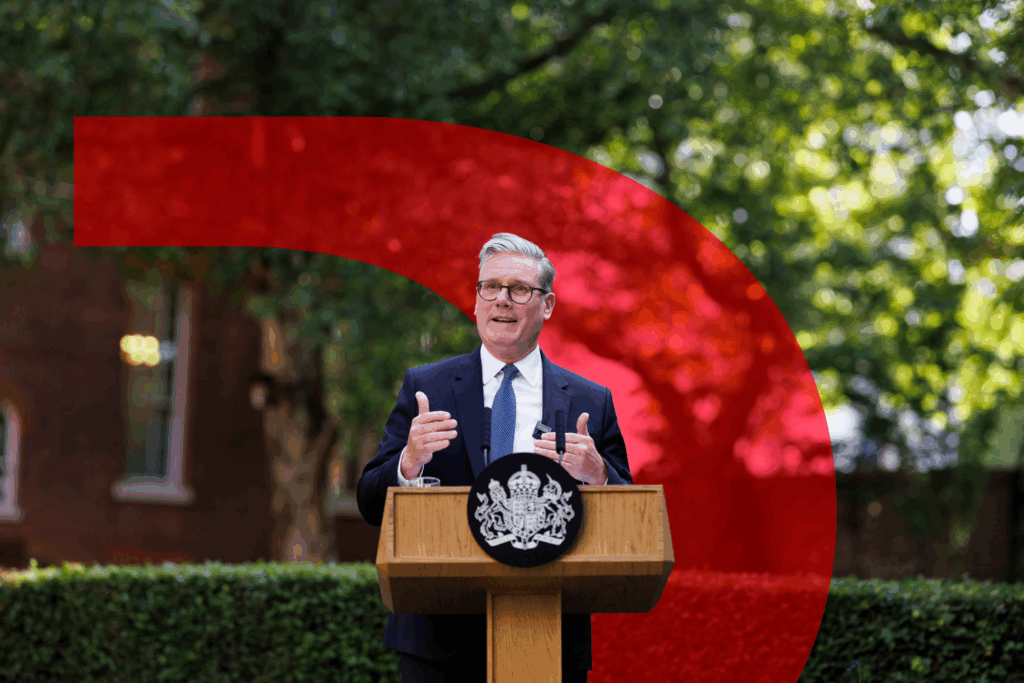Alastair Campbell looks to sport to illustrate the crucial role strategy plays in leadership.
Friends and family believe I am obsessed about sport. I should probably plead guilty to the charge. But in my defence, my fascination with sport stems not just from enjoyment but also because I constantly learn from it. If you want to see, for example, the importance that leadership makes, there is no more obvious or instant arena than sport.
It is in sport where you can see how the ability to set clear objectives and the tactics to deliver them, the capacity for boldness and courage, and the gift of building, leading and inspiring teams pays off. In the modern media age, even the ability to communicate matters more and more. Individual after-match interviews with football managers are rarely illuminating. But over time their character and style of leadership emerges. It is not hard to spot the winners – and losers. Look at Jose Mourinho’s performances if you want to know the difference.
Leadership is also, of course, critical to success in politics and in business. But while in politics, the importance of leadership and the qualities needed to show it are not in question, I am not sure that business has yet caught up. This is partly the result of a critical and largely negative media which persuades all but the brave and eccentric to keep their heads below the parapet whenever they can.
But as the Special One repeatedly demonstrates, being ready to lead from the front is another key principle of leadership in the modern media age. It’s an approach, for example, that Rupert Murdoch failed to follow until it was too late.
Murdoch is one of the media giants of the age. Yet he has operated largely with an old-fashioned head down, never apologising nor explaining attitude. This is fine when things are going well. You can rely on a great deal of media space – particularly if you own much of it – praising the wisdom of your approach.
But it’s a very different story as Murdoch has learnt to his cost when things go wrong. Reputations can take years to build and minutes to weaken. By the time you change your mind set and approach, it can be too late. His company’s media handling of recent events will one day be studied as a casebook in how not to do it.
For politicians, it ought to be easier. Their top people are actually called ‘leaders’. They never want for profile and should make decisions that matter. Yet just look at recent Prime Ministers and see how much difference there is in terms of leadership style and quality.
This can lead people into the trap that leaders are born rather than made so there is little point in trying to change. And yes, Margaret Thatcher and Tony Blair were in many ways stronger and more successful leaders than their successors. But John Major and Gordon Brown also had huge strengths too. Their mistake was they did not always play to them nor crucially did enough to address some of their weaknesses.
Both also help to illustrate how hard it can be to follow successful leaders which is another obvious lesson from sport both on and off the pitch. Arsenal have never successfully replaced Patrick Vieira. Manchester United fans fear decline when Alex Ferguson finally steps down. Given precedent at Old Trafford and many other clubs, they have reason for concern.
What’s also clear is that the media age has dramatically increased pressure on leaders, not least in relation to the need for greater visibility and transparency. The Second World War produced some truly outstanding leaders in Churchill, de Gaulle and Roosevelt. Yet I often wonder how these three very different characters with no shortage of flaws would have coped had they been subject to the 24/7 analysis and negativity which surrounds their modern day successors.
What each had, however, was an understanding of the need for clear objectives and the courage and resilience to continue to focus on them, no matter how tough times got.
So too did Bill Clinton as I saw for myself at the height of the Lewinsky scandal. It was weakness, of course, that landed him in so much trouble in the first place that he might easily have been hounded out of office in disgrace. Yet even in the depth of the crisis, he did not allow himself to be distracted from his role as US President.
I can vouch for this because on the day the Starr report was published, I listened in to a phone call between Clinton and Blair, in which they discussed the decommissioning of Soviet nuclear weapons. Years later I interviewed Clinton for TV and asked him how he kept his focus when others would have collapsed amid all the noise and negativity. He said he had a clear objective – survival. His strategy was to get up every day, focus on those things only he could do because he was President, and his tactics were to make sure the US people knew that is what he was doing.
It worked. He survived. Perhaps even more remarkably I suspect because he stayed so focussed and strategic he may have won a third term had the US Constitution allowed it. Tony Blair managed to make so much progress on Northern Ireland for exactly the same reasons. In contrast, the leadership needed seems to be missing across Europe as we struggle with the eurozone crisis.
So what are the qualities a good leader needs, whether in business, charity or any other walk of life? What can sport and politics teach us?
First, they must possess a strong vision and an ability to communicate those ideas both inside and outside an organisation. It is not enough any longer to be a good manager, ferociously bright or expert in your field. You need clarity of thought and the ability to explain those thoughts clearly. Second, they need the courage and resilience to hold their nerve when times get tough and be able to turn set-backs into opportunities.
Together these first two attributes provide the foundation for the skill of leading in a crisis. Not everyone will find themselves in the middle of a media firestorm or an election campaign when your opponents are busy trying to trip you up every step you take. But all organisations will find times when they risk being knocked off course by the unexpected. That’s when leadership comes into its own. It is also at times of crisis when the strength of the team around the leadership counts most. The knack of picking the right people and welding them into an effective unit is critical.
No matter how good the team, however, they will flounder without knowing the objectives and strategy. Nor can you chart your way through a crisis without a clear sense of direction. Setting clear objectives and strategy has to be the cornerstone of any successful leadership.
But it is amazing how many organisations lack an agreed strategy which is so simple that it can be summed up in a sentence or on the back of a postcard. All too often this is because of major disagreements. The result is confusion and failure.
It is no surprise that people have different views but they must be thrashed out and agreement reached. Deciding strategy is the time to have arguments, not to avoid them. Once strategy is agreed, it becomes much easier to put in place the tactics to deliver it and to ensure the organisation is not knocked off course by events or competitors. It’s a lesson sport shows us time after time.
Right-wing commentator Fraser Nelson recently put his finger on the big difference in this area between Tony Blair and David Cameron. Both, he rightly pointed out, made considerable effort to persuade the media that their approach was right. But with TB and New Labour, he said, we worked out the strategy first and then went out to persuade. Cameron, on the other hand, was all persuasion and no strategy.
At training sessions for Portland staff, I ask for a definition of strategy. My favourite came from a young researcher called Tim who said simply: “Strategy is God”. Blasphemous perhaps but not far wrong.






